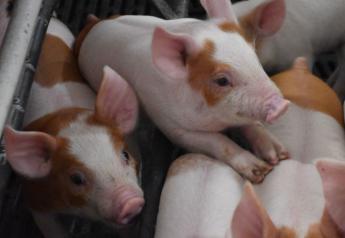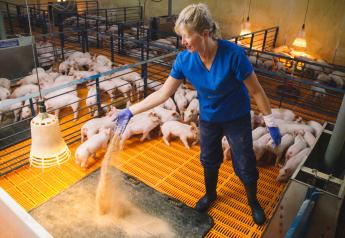Is Gen Z's Attraction to Meat Alternatives a Challenge or Opportunity?

A recent survey from Veylinx, a consumer insights platform, found 77% of respondents said they could be convinced to buy meat alternatives. Gen Z consumers were the most interested at 87%.
Gen Z represents anyone born between 1981 and 1996. Most of Gen Z's parents are at least three generations removed from production agriculture. This creates an interesting challenge or opportunity depending on how you look at it.
"They have some distrust of science, but don’t know who or what to believe," University of Florida meat scientist Chad Carr said about Gen Z in a Farm Journal's PORK column. "They also have a growing interest in 'knowing where their food comes from,' which is a positive."
Survey Results
Overall, 35% of respondents in Veylinx' survey said improved taste could convince them to buy meat alternatives while 28% said a lower price could convince them. The study conducted in March involved 3,538 U.S. consumers over age 18.
Veylinx tested seven proteins: meat, plant-based with meat-like properties, conventional plant-based, cellular meat/fish, mycoprotein, microalgae and insects, Food Business News reports. Categories included burgers, bacon, jerky and lasagna.
Cellular meat, also known as lab-grown or cultivated meat, was the preferred alternative for filet mignon (56% preferred), jerky (50%), burgers (49%) and nuggets (46%). Plant-based with meat-like properties drove the greatest demand for lasagna (50%) and bacon (49%). Microalgae was preferred in sushi (38%).
Interestingly, 42% said they purchased alternative proteins because they considered them "healthier" than meat. Meanwhile, 35% said they prefer the taste, 29% said animal welfare and 29% said better for the environment.
When asked whether they would support an extra 10% meat tax to reduce consumption, 37% of respondents said yes, including 62% for Gen Z. When asked whether the government should subsidize meat alternatives, 51% said yes, including 71% for Gen Z.
Total Protein Market is Growing
Carr reminds farmers that ultimately they are the best ones to help answer Gen Z's questions about food animal production.
"I am trained as a scientist. Some consumers will value my experiences and believe I am giving them unbiased information. But probably more so than me, consumers trust you, the people producing the food, and your connection with the land and animals," Carr wrote.
Social science suggests consumer trust is increased even more if the farmer or rancher states their confidence in feeding the food they produce to their families, Carr added.
Last fall, Anna Dilger, a meat scientist at the University of Illinois, wrote that it's important to remember the current global protein market is dominated by animal-sourced protein and totals about $2 trillion in revenue annually. By 2050, the market for all sources of protein is expected to grow to $3 to $4 trillion.
Jack Bobo, who spent over a decade with the U.S. State Department working on food policy, suggested at the 2021 Reciprocal Meats Conference, that alternative proteins might grow to between 10% to 12% of the total protein market as soon as 2030. But during that same time, animal protein production will also increase, Dilger pointed out.
"In other words, the total protein market is growing larger. While plant-based or other alternative proteins will have a larger ‘slice of the pie,’ the pie itself is getting bigger. The world will be consuming both more alternative proteins in the future and more animal protein," Dilger wrote. "For now, I am choosing not to worry about alternative proteins. There is room at the table for all kinds of protein. And frankly, until someone can make a plant taste like bacon, I think we will be OK."
Read More:
Meat Matters: Gen Z - Who Will They Believe?
Is There Room at the Table for Meat and Alternative Proteins?
Register now for United Pork Americas Online Symposium (a pre-conference event) on Wed., May 25 at 9 a.m. CT to discuss Global Markets: The Americas Opportunities for Future Advancements in Exports, Quality, Health and Profitability with Nathan Losey of Ag Resource Management, Richard Herzfelder of Gira, Clinton Griffiths of AgDay TV and Jennifer Shike of Farm Journal's PORK.








